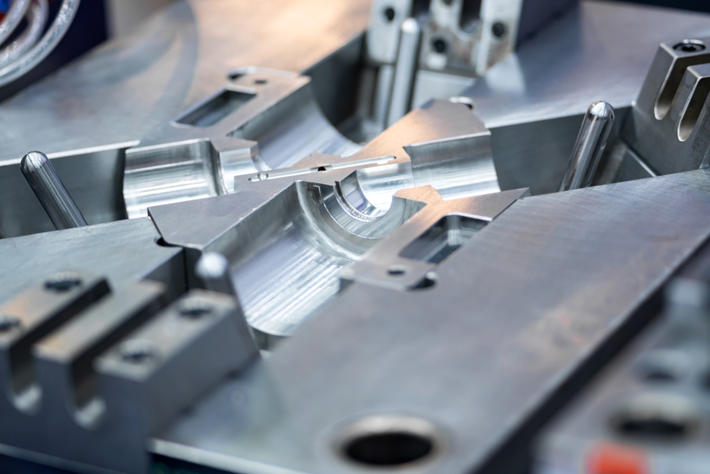Aluminum alloy die casting is a manufacturing process that involves the use of molten aluminum alloy to create complex and intricate parts or components. This process is incredibly versatile and efficient, making it a popular choice for a wide range of industries.
The die casting process utilizes a mold or die that is typically made of steel or aluminum. Molten aluminum is then injected into the die under high pressure, which allows it to take on the shape of the mold. Once the metal has cooled and solidified, the mold is opened and the finished part can be removed.
One of the primary advantages of aluminum alloy die casting is its ability to produce high-quality, lightweight parts. Because aluminum has a low density, it is an ideal material for creating parts that need to be both strong and lightweight. Additionally, aluminum is highly corrosion-resistant, which makes it a good choice for applications that require exposure to harsh environments.
Another benefit of aluminum alloy die casting is the speed at which parts can be produced. Because the process is automated, and the molds can be reused, large quantities of parts can be manufactured quickly and efficiently. This makes it an attractive option for industries that require high volumes of parts, such as the automotive industry.

Aluminum alloy die casting is also a highly precise process. The molds used in the process are created with extreme accuracy, which means that the finished parts are also incredibly precise. This makes it an excellent choice for industries that require parts with tight tolerances, such as the aerospace industry.
Despite its many benefits, there are some limitations to the aluminum alloy die casting process. For example, it may not be the best choice for creating parts that require a high degree of flexibility or elasticity. Additionally, the process may not be well-suited for creating extremely large parts.
Overall, aluminum alloy die casting is a versatile and efficient manufacturing process that offers many benefits to a wide range of industries. Whether you need lightweight and corrosion-resistant parts for the automotive industry, or precise and durable parts for the aerospace industry, aluminum alloy die casting may be the ideal manufacturing process for your needs.
-

- Magnesium alloy rigid fork for bicycle -customized die casting metal parts
-

- أجزاء ومكونات OEM مصبوبة
-

- Magnesium alloy thixomolding die-casting UAV parts C
-

- OEM die casting components for automotive Seat frame
-

- 2022 الجملة حار بيع أجزاء الدراجة سبائك المغنيسيوم الأطفال الدراجة لا دواسة التوازن دراجة أطفال متعددة الألوان المتاحة
-

- أجزاء مسبك سبائك المغنيسيوم عجلة دراجة مع التصنيع باستخدام الحاسب الآلي وتشطيب السطح

 0086-750-5616188
0086-750-5616188 +86 13392089688
+86 13392089688 sales@zhongmei-tech.com
sales@zhongmei-tech.com







